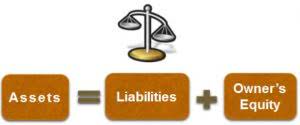
The net ordinary business income after expenses and deductions from your S Corp tax return. Generally, when you have multiple income sources, especially ones without a withholding component such as K-1’s and rentals, relying on payroll tables to determine withholdings is woefully inaccurate. A payroll provider will do more than calculate payroll and withhold taxes. If you are ever audited for any reason, you’ll have an accurate record of all your payroll transactions. These records are also useful for showing the IRS that you have fulfilled your S corp duty to pay yourself a reasonable salary. It’s important s corp payroll to remember that the Internal Revenue Service (IRS) requires S corp owners to be paid a reasonable salary.
- If you take too much salary and not enough distributions, you might pay more in self-employment taxes than necessary.
- What’s more, shareholder distributions aren’t subject to Medicare and Social Security taxes, also known as Federal Insurance Contribution Act (FICA) taxes.
- “As an S Corp owner, you should take a sensible mix of distributions and salary.
- Certain states have reciprocity agreements in place, which can simplify tax obligations for employees who live in one state but work in another.
- These tools provide valuable insights into what similar roles in the same industry typically earn.
- Work from home may also deduct the percentage of your home used exclusively for business.
- S-Corps, like many other businesses, run payroll by calculating taxes based on wages earned in a pay period.
Pay yourself a “reasonable” salary
As the business grows, shareholder-employees must earn a salary comparable to what other businesses pay employees for the same type of work. S-Corps, like many other businesses, run payroll by calculating taxes based on wages earned in a pay period. Consistency is important; payroll needs to be done on a regular schedule, such as weekly, bi-weekly, or monthly. Additionally, S-Corps may issue bonuses or reduce shareholder-employee compensation based on business success and projected profits. Though the company may claim a write-off from its payroll taxes, they are still unnecessary if the owner is overpaid or a threat when the owner is underpaid. Paying the right amount is a balancing act to prevent IRS scrutiny or avoid paying too much.
- Taking too low of a salary or skipping one altogether can lead to unpaid taxes and federal fines.
- You could check out salary information for each role you fill and combine the rates.
- Understanding these owner compensation rules is essential for business owners to effectively manage their tax obligations and optimize their financial benefits.
- Review your state’s requirements to determine whether or not you need workers’ compensation insurance.
- S corp owners must be diligent in distinguishing between salary and distributions to adhere to IRS guidelines and avoid reclassification of distributions as wages, which would subject them to employment taxes.
Does an S corp pay payroll taxes?

The software automatically calculates FICA and federal income taxes based on the pay frequency entered. Remember that the wages paid Accounts Payable Management to employees must be for services performed for the business. So, shareholder-employees must receive reasonable compensation in the form of taxable wages for all work. “As an S Corp owner, you should take a sensible mix of distributions and salary. If you only take distributions and skip a salary, the IRS could reclassify those distributions as wages and assess back taxes and penalties.
What is a reasonable salary for an S Corp?

Automated payroll systems reduce the risk of human error and guarantee that all necessary tax obligations are met. This efficiency allows S corporation owners to focus on their business operations, knowing that their payroll responsibilities are being managed effectively. Failure to withhold and remit payroll taxes can lead to significant penalties and interest, compromising the financial health of the S Corporation. FICA taxes, comprising Social Security and Medicare taxes, are a significant component of payroll taxes. Both the employer and employee share the responsibility for FICA taxes, with each party contributing an equal portion. The employer must guarantee that the correct percentage is withheld from the employee’s pay and simultaneously match this amount with their contribution.

Unlock your growth potential
Employers must meticulously record and report all payroll tax withholding to the IRS promptly. Detailed Online Accounting payroll records are essential for tracking these withholdings for each employee, facilitating accurate reporting and compliance. Shareholder-employees of S Corporations must report their wages properly to comply with these payroll tax obligations. Failure to do so can result in severe tax issues and financial consequences. Any profit your business had at the end of the year passes through the company and is taxed through your individual tax return. All the profits it earns pass through the business to shareholders’ individual returns.

Using this formula, they divide their business income into two parts, with 60% designated as salary and 40% paid as shareholder distributions. Although many accountants use the 60/40 rule of thumb, it’s not officially approved by the IRS. One of the biggest advantages of being an S Corporation is the tax savings from taking distributions that are not subject to payroll taxes. However, to take distributions, you must first satisfy the IRS requirement to take reasonable compensation as W-2 wages, which are subject to payroll taxes.
- S corporation owners must meticulously calculate these taxes to comply with federal tax regulations and avoid substantial penalties.
- Once you’ve officially become an S corporation, you’ll first need to decide upon a reasonable salary to pay yourself.
- Additionally, shareholders may benefit from the ability to write off business expenses against the S-Corporation’s income.
- The IRS expects owners to pay themselves a “reasonable compensation,” which is dictated by industry or marketplace standards.
- You have to decide on a “reasonable” salary for your paycheck for the work you do.
- However, these tax benefits must be balanced against the IRS requirement that you pay yourself a reasonable salary before taking distributions to maintain tax compliance.
You could pay more in taxes than necessary, risk penalties for low-balling your pay or end up with unused money in the company. It’s a little odd to think about distributions as a Business-of-One, because the business’s profits are generally all your income. But you distinguish how you receive that income, because they have different tax implications. Our fourth tip for how to run payroll for an S Corp is to maintain accurate and detailed records for all payroll transactions. It can be easy to get passive with your record-keeping, especially if you are a single-owner S Corp simply using your corporation to pay yourself.
- Understanding state payroll taxes requires an understanding of the specific regulations and rates applicable in each state where the S corporation operates.
- Consult reliable resources such as the Bureau of Labor Statistics and employer-review sites to gather thorough salary data.
- If you’re interested in learning more about payroll-related topics, be sure to check out our Payroll Webinar page.
- Paying yourself a reasonable W-2 salary is a legal requirement, and taking distributions strategically can help you minimize your payroll tax burden.
So, what is the role of corporate officers, what is reasonable compensation, what precedents exist, and how is all of this managed? Read on to learn how to pay yourself the right amount to keep you out of trouble with the IRS while preventing unnecessary expenses. Wage and Tax Statement that reports an employee’s total income and taxes withheld from wages. Use our S corporation tax savings calculator to make a quick estimate of the annual tax savings per owner. So that’s what we’ve finally done with our $20 monograph, Five Minute Payroll. If your S corporation pays you payroll of $10,000 a quarter, that amount equals $765 obviously.
